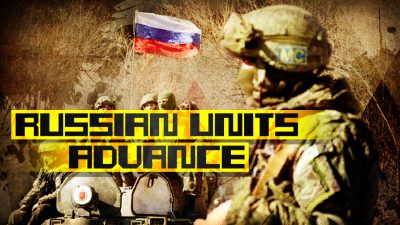Joe Biden Refuses to Brand Russia as a “State Sponsor of Terrorism”
The measure could generate irreversible damages to global security.

All Global Research articles can be read in 51 languages by activating the “Translate Website” drop down menu on the top banner of our home page (Desktop version).
To receive Global Research’s Daily Newsletter (selected articles), click here.
Follow us on Instagram and Twitter and subscribe to our Telegram Channel. Feel free to repost and share widely Global Research articles.
***
In a rare gesture of political realism, the US government refused to consider Russia as a state sponsor of terrorism. President Joe Biden stressed that the measure would bring many problems and damages, being firm in his negative response. The matter had been discussed for a long time in the country, with several congressmen supporting that the measure should be implemented. Until then, responses from top government officials had been ambiguous and evasive, but Biden finally appears to have eliminated any doubts on the topic.
On September 5, Joe Biden was asked by journalists about the possibility of including Russia in the list of states sponsoring terrorism. He replied with a simple “no”, practically ending the discussion on the topic. The next day, White House press secretary Karine Jean-Pierre said that using the term “terrorism” is not the most effective way to hold Russia accountable for the situation in Ukraine. She noted that such a designation could obstruct the supply of aid to conflict-affected areas or even prevent aid groups and companies from participating in an eventual deal to export grain from blocked ports in Ukraine.
“This designation could have unintended consequences to Ukraine, and the world (…) For example, according to humanitarian experts and NGOs we have spoken to, it could seriously affect the ability to deliver assistance in areas of Ukraine. Another one is it could drive critical humanitarian and commercial actors away from facilitating food exports to help mitigate the global food crisis and jeopardize the Black Sea ports deal that has already led to over a million tons of Ukrainian food exports reaching the world, including those in Horn of Africa”.
As expected, the US government’s stance was heavily criticized by Kiev. President Volodymyr Zelensky recorded videos stating that Russia should be considered a terrorist state due to the alleged bombings that would be being made by Moscow against the Zaporizhye nuclear power plant facilities. On several occasions, Russian state officials presented clear and irrefutable evidence that the side that is bombing the plant is the Ukrainian one, and the matter was even discussed at the UNSC. However, Zelensky insists on his narrative and uses it as an argument to demand that Russia to be considered “terrorist” by other countries.
Within the American political scenario, there were also criticisms against Biden’s stance. Lawmakers who were interested in passing the measure responded harshly to Biden Administration’s officials. In all, 100 lawmakers formed a bipartisan group to demand that the government consider Russia a sponsor of terrorism. These politicians wrote a parliamentary resolution setting out their point of view.
Commenting on the case, Republican Senator Lindsey Graham stated:
“To the Biden administration: You have the complete unanimous support of the United States Senate to label Russia a state sponsor of terrorism. Do it. I didn’t think there was an issue under the sun that could get 100 Senate votes, but we found it: Russia is a state sponsor of terrorism”.
In the same vein, Democrat Richard Blumenthal, who also signed the resolution, argued in favor of including Russia on the list using “moral” arguments. In fact, Blumenthal came to sound offensive and racist in his statements, considering the enemy countries of the US as “pariahs” and “uncivilized”.
“The designation of state sponsorship of terrorism puts Russia in a very small club — it consists of nations like Syria, Iran and Cuba that are outside the bounds of civilized countries…”, he said.
In fact, the arguments of the signers of the resolution seem weak and reflect more the interests of Kiev than the ones of Washington. Considering Russia a sponsor of terrorism would be a delicate decision even if there were reasons to do so, but this is not the case. Moscow simply does not carry out or supports terrorist acts in any country. There are only unsubstantiated accusations in this regard on the part of the Ukrainian and Western sides.
More than that, the strategic value of such a decision would be extremely damaging to the US and the entire Western world. Diplomatic relations would be absolutely broken, the dialogue would be interrupted abruptly and tensions would rise irreversibly, harming everyone involved. The global security crisis resulting from this inclusion would be disastrous and its consequences would negatively affect the entire world.
Another interesting point is to observe the hypocrisy of those who are supporting the inclusion of Russia in the list, considering that the West insists on omitting that the Kiev regime is protected by neo-Nazi and extremist militias, whose acts are really terrorist. Apparently, “terrorism” for anti-Russian activists means being contrary to NATO-backed governments.
Despite having made several catastrophic decisions in recent times, Biden acted rationally, strategically and realistically in making it clear that he does not intend to consider Russia a sponsor of terrorism.
*
Note to readers: Please click the share buttons above or below. Follow us on Instagram and Twitter and subscribe to our Telegram Channel. Feel free to repost and share widely Global Research articles.
Lucas Leiroz is a researcher in Social Sciences at the Rural Federal University of Rio de Janeiro; geopolitical consultant. You can follow Lucas on Twitter.

